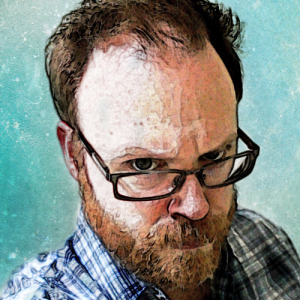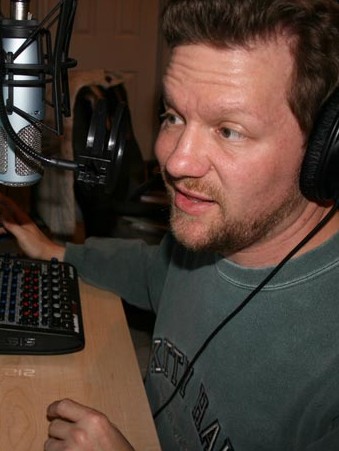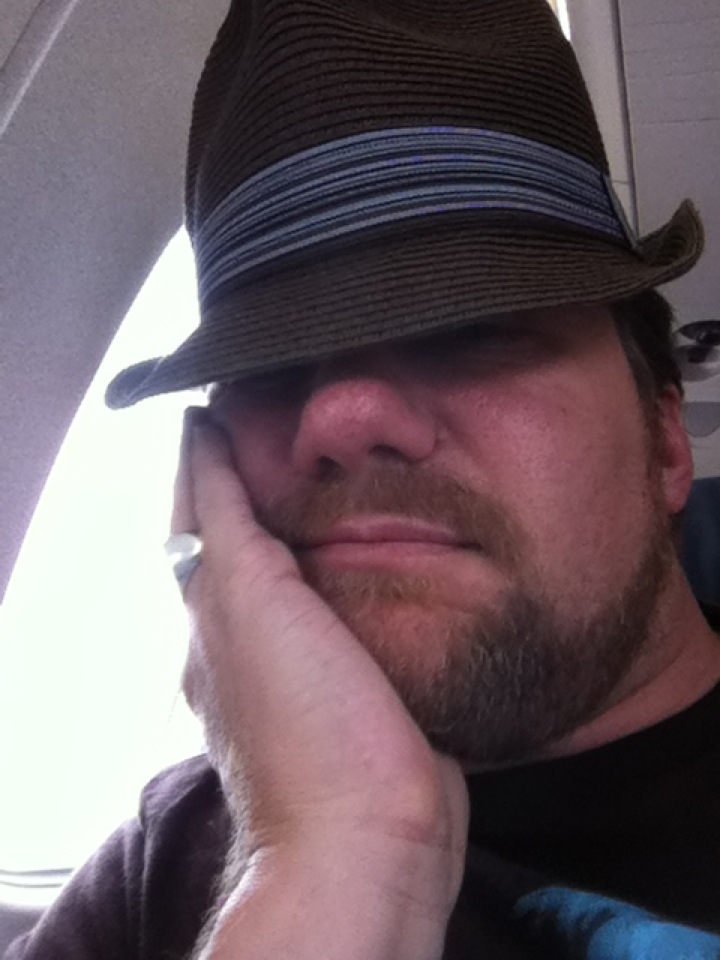
Today — February 6th — was dubbed by Chuck Wendig (or I like to call him, TMB or That Magnificent Bastard) as International Please Don’t Pirate My Book Day. He has put out a call for creatives of all types to head to their blogs, their podcasts, and their various social media networks to share their thoughts about piracy. This, as inspired by that TMB, is my own entry. If you join in, give Chuck a shout.
 Step in your wayback machines to 2005. A short eternity in Interweb years, but barely eight years ago a young whelp of an author launched a rather daunting project: a podcast novel. Following in the footsteps of people like John Scalzi, Cory Doctorow, and others, I stepped up with my epic fantasy MOREVI: The Chronicles of Rafe and Askana to give it away as a podcast. Throughout the journey I was an advocate for this new model of promotion and marketing. Interviews with me at that time were reminiscent of a Red Hot Chili Peppers diddy…
Step in your wayback machines to 2005. A short eternity in Interweb years, but barely eight years ago a young whelp of an author launched a rather daunting project: a podcast novel. Following in the footsteps of people like John Scalzi, Cory Doctorow, and others, I stepped up with my epic fantasy MOREVI: The Chronicles of Rafe and Askana to give it away as a podcast. Throughout the journey I was an advocate for this new model of promotion and marketing. Interviews with me at that time were reminiscent of a Red Hot Chili Peppers diddy…
No, not “Catholic School Girls Rule.†This one.
Just give it away. No strings attached. Let the audience carry your work into a viral sphere of success. Build yourself a fan base with free audio. We were called “scabs†by the Science Fiction Writers of America. I was patronized by audio book publishers when I suggested the idea of taking the “slowest moving title†in their library and offering it as a podcast for free. And even with the numbers of my book at Dragon Moon Press steadily climbing, publishers refused to buy into the concept of giving a novel away for free in any format.
Now, almost a decade later, I ask that you do not circulate my book for free.
Why? How is taking a stand against piracy and asking for copyright laws to be respected different from 2005 when I encouraged people to burn CDs of my podcast and share them with friends?
When I podcast both MOREVI and The Case of the Singing Sword, I wanted to increase my distribution to other parts of the country and the world. It was my decision to release these books for free. The approach was to offer this audio adaptation at no cost; and if the audience didn’t want to wait for the next installment, they would be able to purchase the book from Amazon. This approach in giving my book away for free was my choice. It was also my choice, at any time, to pull the plug. Some authors, not worth naming in this article, did this with their own podcast titles in progress; but I promised myself that if I started podcasting a novel, I’d finish it. That was my promise, and my choice.
One day, I would like to write full time. When I choose to give away free fiction, it’s part of a bigger plan. Piracy — something out of my control — will prevent that transition to full-time writing.
I remember the first time Phoenix Rising: A Ministry of Peculiar Occurrences Novel was pirated. I considered it a rite of passage. Someone found it good enough to pirate. Wow! Cool! That was the reaction of the social media swashbuckler, the “No-no-no, give it away! Give the people what they want!†Tee Morris who, with this act of piracy, had finally arrived.
Then I stopped for a minute and really thought about it. I thought about how I was never asked permission. I thought about how I couldn’t check the quality of the download. I thought about how people weren’t being loaned a copy like in a library, but being given copies of Phoenix Rising: A Ministry of Peculiar Occurrences Novel to keep for themselves. No real way of tracking the numbers.
Yes, the numbers. The all-mighty numbers. I was a new author; and in the eyes of my publisher, only one sale was recorded. And that one sale decided to share. With everybody in the world. Without my permission.
Maybe we don’t show it at a con — and while turning conventions into Thunderdomes may sound appealing, I’d rather not (Author David B. Coe would wipe the floor with me for starters!) — but writing is a competitive business. There are only so many open slots for the New York Times coveted Bestseller List. There are others worth mentioning. Locus and USA Today both have Bestseller Lists. Indie bookstores like Borderlands also have their own Top Ten’s. And then there’s Goodreads Best of the Year lists, but there are only so many slots available. There are a lot of writers out there. With the popularity of digital publishing, the market has only exploded. So yes, it is a competitive business. Piracy affects that.
Why do I ask you do not pirate my book? Because, one day, I would love to go full time with my writing. I don’t mind giving out my work for free, provided it is my choice. It is part of my own strategy in marketing a title, and I will continue to provide free audio fiction in the future as it remains a great way to introduce new audiences to my worlds. It is part of my marketing plan, part of the brand I am attempting to build. When my work is pirated, it’s not part of that plan. Additionally, torrenting my books is being done without my permission. It affects sales. Dramatically? Hard to say. The piracy in Spain was enough to compel an award-winning writer to quit her career; and I know that when I find out about a site that is offering up my work, it remains online until my publisher’s legal team can “get around to it.†So it remains vulnerable, available, until removed. Only to appear on another site.
And exactly what does that say about any kind of respect to the artist? Is it an honor that of all the books published, our steampunk adventures are being torrented? Or is it that people who choose to pirate our books do this because they find eight dollars too much to pay for a download? A sense of entitlement on the part of the online community, perhaps? I don’t know why people pirate, but I do know that people who have read my work want more. I would love to go full time, and produce more; but I need to have the numbers that show the demand, and convince the publisher to keep my books in print. Piracy affects those numbers, and piracy can steer the course of a career.
You want me to go full time as an author? So would I.
